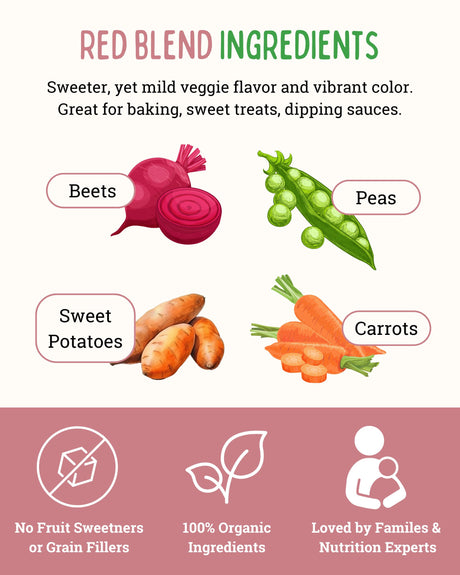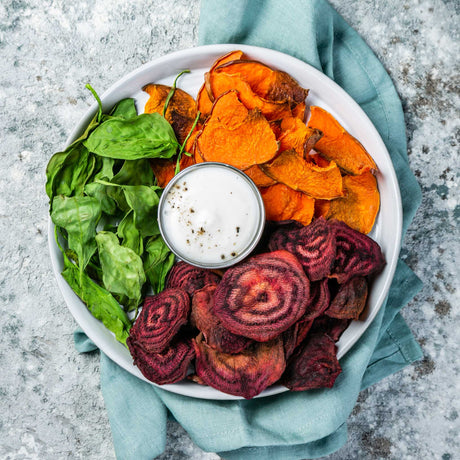Nourishing the Teenage Years
In the whirlwind of adolescence, proper nutrition often takes a backseat as teenagers juggle school, social activities, and personal growth. However, it's during these formative years that nutrition plays a vital role in ensuring their physical and mental well-being.
Let's dive into the importance of nutrition during adolescence and explore the unique challenges and changes that teenagers face in terms of their nutritional needs.
The Crucial Role of Nutrition
Adolescence is a period of rapid growth and development, second only to infancy. This growth spurt requires a substantial influx of nutrients to support not only physical changes but also cognitive and emotional development.
Proper nutrition at this stage lays the foundation for a healthy adulthood.
Navigating the Teenage Nutritional Maze
Teenagers face a myriad of challenges when it comes to their diet. Peer influences, busy schedules, and an ever-expanding world of food choices can make it difficult to make wholesome choices.
Moreover, the physiological changes that accompany puberty can alter their appetite and nutrient requirements. Understanding these challenges is key to helping teenagers make informed and healthy dietary decisions.
Unlocking the Mysteries of Teenage Growth

Puberty's Growth Spurts
Puberty is a game-changer in the life of a teenager. It's the period when the body undergoes rapid physical changes, including the development of secondary sexual characteristics.
These growth spurts can lead to significant increases in height and weight, making it a crucial time to ensure adequate nutrition.
Unveiling Gender Differences
While both boys and girls experience growth during adolescence, their patterns differ. Boys typically experience a more prolonged growth period, with growth plates in their bones closing later than in girls.
Understanding these gender variations is essential in tailoring nutritional guidance to meet their distinct needs.
The Hormonal Influence
Hormones play a pivotal role in shaping a teenager's body and nutritional requirements. Hormonal fluctuations can impact appetite, metabolism, and nutrient utilization.
Recognizing these hormonal influences allows us to provide tailored advice to ensure teenagers receive the nutrients they need to thrive during this dynamic phase of life.
Macronutrients: Fueling the Teen Engine

Carbohydrates: Energizing Adolescence
Carbohydrates are the primary source of energy for teenagers. Whether it's powering through school, sports, or social activities, carbohydrates provide the necessary fuel.
It's crucial to emphasize complex carbohydrates like whole grains, fruits, and vegetables, which offer sustained energy and essential vitamins and minerals.
Protein: Building Blocks of Growth
Protein is the cornerstone of growth and muscle development during adolescence. Teenagers experience significant physical changes, and protein plays a vital role in building and repairing tissues.
Lean sources of protein like poultry, fish, beans, and nuts should feature prominently in their diet to support this growth.
Healthy Fats: Balancing Hormones
Healthy fats are essential for hormonal balance, which can be tumultuous during adolescence. These fats help in the production of hormones, including those responsible for growth and development.
Encouraging the consumption of sources like avocados, nuts, and olive oil can contribute to hormonal stability and overall health in teenagers.
Micronutrients and Minerals: Teenagers' Nutritional Allies
Calcium: Building Strong Foundations
Calcium is a vital mineral during adolescence, contributing to the development of strong and healthy bones. The teenage years are a critical time for bone growth, and adequate calcium intake is essential to build a solid foundation for a lifetime of bone health.
Encouraging the consumption of dairy products, leafy greens, and fortified foods can help teenagers meet their calcium needs.
Iron: Powering Cognitive Function and Energy
Iron is a nutrient that shouldn't be overlooked during adolescence. It plays a pivotal role in cognitive function and energy production.
Ensuring an adequate intake of iron-rich foods like lean meats, beans, and fortified cereals can help teenagers stay alert and energized, particularly during their busy academic and extracurricular schedules.
Vitamins: The Guardians of Well-Being
Vitamins are essential for overall well-being, and teenagers require a diverse range of them to support various bodily functions. Encourage a balanced diet that includes a variety of fruits and vegetables to provide a spectrum of vitamins, from vitamin C for immune support to vitamin A for healthy skin and eyes.
A well-rounded diet is the key to ensuring teenagers receive the full spectrum of essential vitamins.
Building a Balanced Diet: The Foundation for Teenagers' Health

Creating a Well-Rounded Plate: The Nutritional Canvas
A well-rounded plate is like a canvas for a nutritious masterpiece. Encourage teenagers to include a variety of food groups in their meals. This means incorporating lean proteins like chicken, fish, or legumes, along with ample servings of colorful fruits and vegetables.
Adding whole grains and a source of healthy fats, such as avocados or nuts, ensures a balanced and satisfying meal that provides a spectrum of nutrients.
Incorporating Fruits and Vegetables: EasyPeasie to the Rescue
Getting teenagers to embrace fruits and vegetables can be a challenge, but it's crucial for their nutrition. EasyPeasie products can be a valuable ally in this endeavor. These products offer innovative ways to sneak in extra servings of vegetables without sacrificing taste.
Whether it's adding veggie powders to smoothies or incorporating them into favorite dishes, EasyPeasie makes it easier for teenagers to meet their nutritional needs while enjoying delicious meals.
Choosing Whole Grains over Refined Grains: Nutrient-Rich Options
When it comes to grains, whole grains should be the top choice. Unlike refined grains, whole grains retain their bran and germ, which are rich in essential nutrients and fiber.
Encourage teenagers to opt for whole grain bread, pasta, and rice instead of their refined counterparts. These choices provide sustained energy, better digestion, and a broader array of nutrients to support growing bodies and active lifestyles.
Snacking for Teenagers
Fueling Health
Snacking can be a double-edged sword for teenagers. On one hand, it can provide essential nutrients and energy boosts throughout the day. On the other hand, it can lead to unhealthy choices like empty calorie snacks and sugary drinks.
Let's explore some healthy snack ideas for teenagers while steering clear of those less nutritious options.
Healthy Snack Ideas for Teenagers
Teenagers often have busy schedules, making snacking a vital part of their day. Opt for nutrient-dense snacks that keep them fueled and focused. EasyPeasie products offer an ingenious way to sneak in extra vegetables without compromising on taste.
Consider serving carrot or spinach powders with yogurt or hummus for a nutrient-packed dip. Veggie powders can also be added to homemade muffins or smoothies, making them a convenient and delicious choice for teens on the go.
Avoiding Empty Calorie Snacks and Sugary Drinks: Mindful Choices
Steer teenagers away from empty calorie snacks and sugary drinks that offer little to no nutritional value. Encourage them to read labels and be mindful of added sugars and artificial additives. Instead of soda or sugary juices, opt for water, flavored with a splash of lemon or cucumber for added refreshment.
Swap out chips and candies for whole-grain crackers with cheese or a handful of mixed nuts and dried fruits. By making conscious choices, teenagers can enjoy satisfying snacks that contribute to their overall health and well-being.
Recognizing Eating Disorders: A Delicate Balance
Identifying Warning Signs of Disordered Eating: Clues to Look For
Teenagers may not always vocalize their struggles with food, body image, or eating behaviors. Look out for subtle cues such as significant weight changes, an obsession with food or calorie counting, avoiding social meals, or excessive exercising.
Pay attention to mood swings, irritability, or a preoccupation with appearance. If you notice these signs, it's essential to tread carefully and initiate a conversation.
How to Approach and Support a Teenager with Eating Concerns
If you suspect a teenager is struggling with disordered eating, approach the situation with empathy and an open heart. Create a safe space for them to share their feelings and fears without judgment.
Encourage them to seek professional help from a therapist or registered dietitian who specializes in eating disorders. Remember, your role is to provide support, understanding, and encouragement as they embark on their journey to recovery.
Nourishing the Future

Long-term Impact of Proper Nutrition in Adolescence: Seeds for a Healthy Future
Investing in healthy eating habits during the teenage years is akin to planting seeds for a thriving future. Adequate nutrition not only supports physical growth but also nurtures cognitive development and emotional well-being.
Adolescence is a critical phase where lifelong habits are formed, and providing the right nutrients can help teenagers blossom into healthy adults.
Promoting Healthy Eating Habits for a Lifetime: A Gift That Keeps Giving
Encouraging teenagers to embrace a balanced and mindful approach to eating isn't just a short-term endeavor—it's a gift that keeps giving. By instilling a love for nutritious foods and a positive relationship with their bodies, we empower them to make informed choices throughout their lives.
Remember, the impact of your guidance extends far beyond their teenage years, as they carry these valuable lessons into adulthood, fostering a legacy of wellness and vitality.
Leave your comments below; we love to hear from you! And don't forget to follow EasyPeasie for more veggie info and convo on YouTube, Facebook, and Instagram! ~ThePeas













